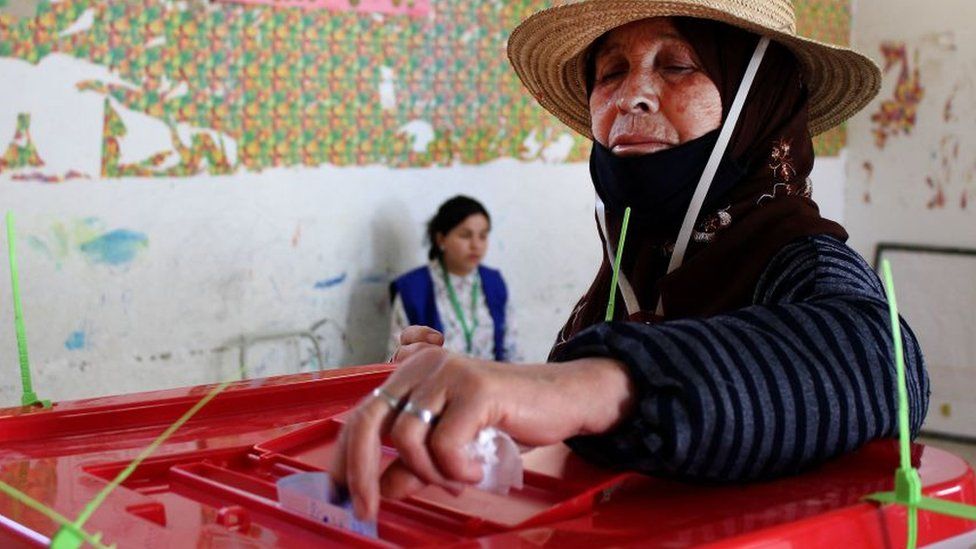Tunisia referendum: Voters decide whether to increase president's powers
The new constitution, which replaces one drafted in 2014 three years after the Arab Spring, would give the head of state full executive control, supreme command of the army and the ability to appoint a government without parliamentary approval

Tunisians are voting in a referendum on a controversial new constitution.
President Kais Saied says the vote is necessary in order to advance political reforms.
But his opponents say it will entrench the powers he seized a year ago when he embarked on what has essentially been one-man rule.
Tunisia was the birthplace of the Arab Spring, which saw the overthrow of long-serving ruler Zine al-Abidine Ben Ali in 2011.
The date of the referendum was chosen by President Saied to mark a year to the day since his dramatic move to suspend parliament and dismiss the government.
Since then, he has effectively ruled by decree.
The new constitution, which replaces one drafted in 2014 three years after the Arab Spring, would give the head of state full executive control, supreme command of the army and the ability to appoint a government without parliamentary approval.
Mr Saied says it is needed to break a cycle of political paralysis and economic decay.
He says his reforms are being done in the spirit of the 2011 revolution and will ensure a better future.
"Our money and our wealth are enormous, and our will is even greater, to rebuild a new Tunisia and a new republic, one that breaks with the past," the president said after voting on Monday morning.
His many critics say it could lead Tunisia back to dictatorship in all but name.
The major parties - including the Islamist Ennahda - are boycotting the vote.
Although President Saied still has a core of support among Tunisians who believe the country needs a strong leader to address its problems, there seems little enthusiasm for the referendum.
Turnout is expected to be low. But with no minimum level of participation needed for approval, it seems likely to be passed.
Polls close at 22:00 local time (21:00 GMT), but it is not clear when the result will be announced.


